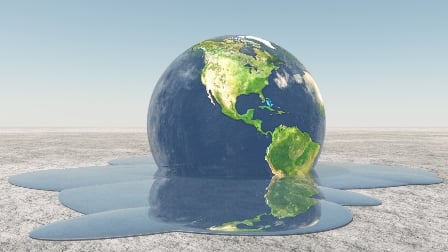In a strange twist, farmers and scientists believe that climate change could lead to more arable lands in once-frigid areas – however, the same phenomenon could also result in more farming complications.
“Canada is one of the few countries where climate change may create some opportunities for growing crops in northern latitudes,” said Rod Bonnett, president of lobby group Canadian Federation of Agriculture.
Agriculture and Agri-Food Canada senior official Ian Jarvis said that determining how much land would be suitable for farming following climate change will not be easy. He estimated that the amount of arable land could rise between 26% and 40% by 2040.
Search and compare product listings for Farmer’s Insurance from specialty market providers here
“Most of the improvements are happening in fringe areas of agricultural regions,” Jarvis told the Thomson Reuters Foundation. “Canada is in a better situation than much of the rest of the world.”
Bonnett said that warming is expected to clear up new land to farming in northern prairie areas such as portions of the Yukon Territory near the Arctic, the Peace River region that straddles northern British Columbia and Alberta, and parts of northern Ontario.
“There is a lot more interest in taking a look at underdeveloped land in northern Ontario and Quebec because of changes in climate,” he explained.
But with climate change comes more unpredictable weather, and more potential for large crop losses.
“While there’s a lot of uncertainty surrounding the future of Canada’s agriculture industry, one thing is clear: we are likely to see more extreme weather events, soil erosion and higher average temperatures,” Federated Insurance said in a statement.
There are also concerns that a climate change-induced water shortage could put a stop to any farmland expansion efforts.
“Canada could benefit more than most from climate change, but it hinges on its ability to manage its water resources,” International Institute for Sustainable Development researcher Hank Venema told Global News.
In the 1930s, Canada was affected by the same “Dust Bowl” drought that hit the US. Venema warned that it is a problem that could happen again as temperatures warm.
Jarvis added that if the heat keeps rising and causes water shortages and crop failures, Canada could experience a decrease in farm productivity by the end of the century.
Most experts and farmers believe that the potential rewards of climate change will outweigh the many risks – but it would take the next 30 years before it all pays off.
Although climate change could present a wealth of farming opportunities for Canada, that does not mean the phenomenon is all good.
“Canada could be playing a bigger role providing the food for the world as heat rises,” Jarvis stated. “Other countries are going to be affected (by climate change) much worse than we are. It’s not a really happy picture overall.”
Related stories:
Farming insurance can garner lifelong policy renewals
Crop losses take their toll on Saskatchewan farmers


